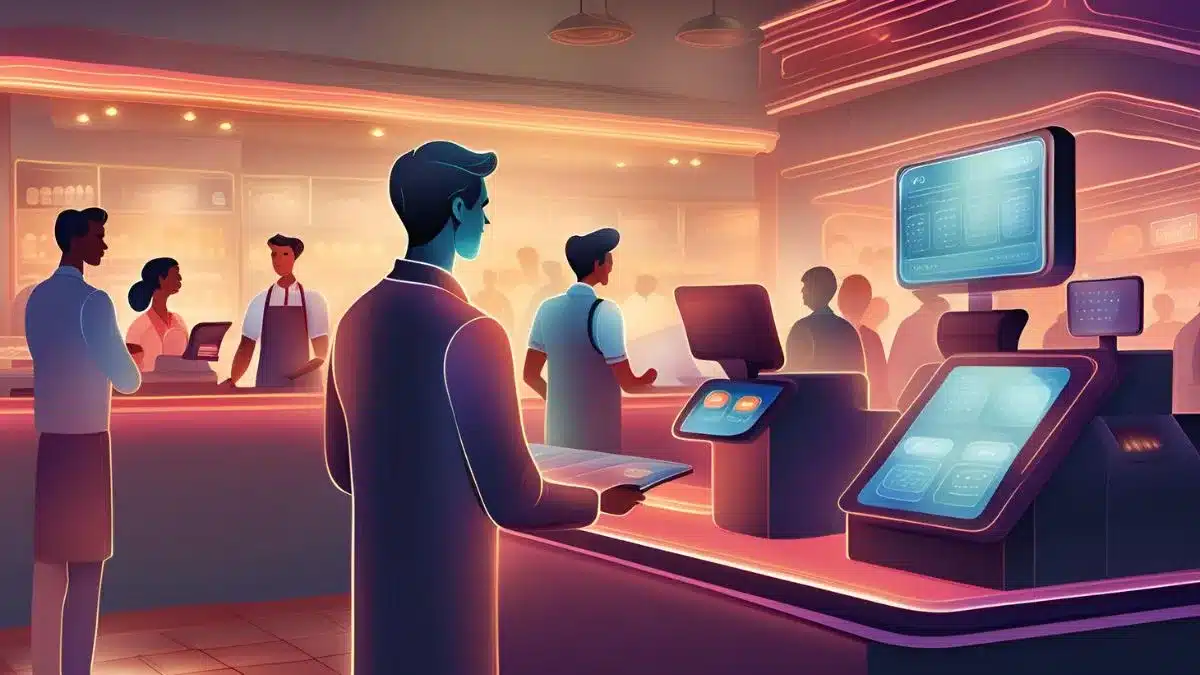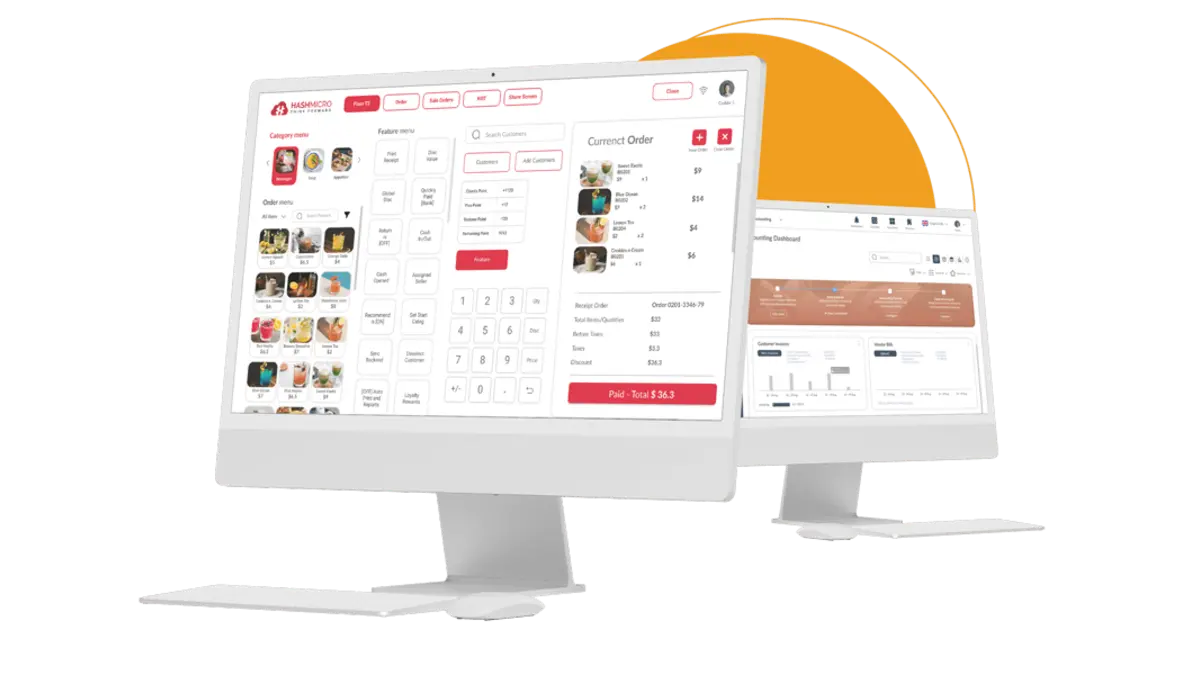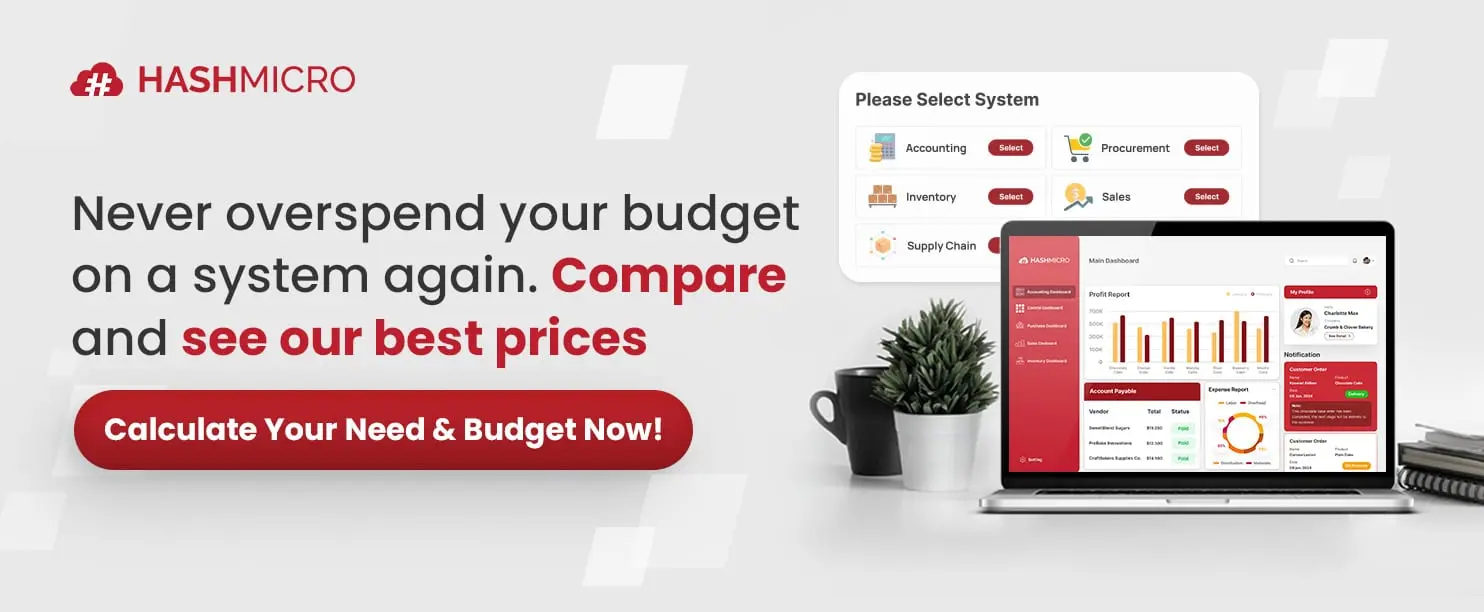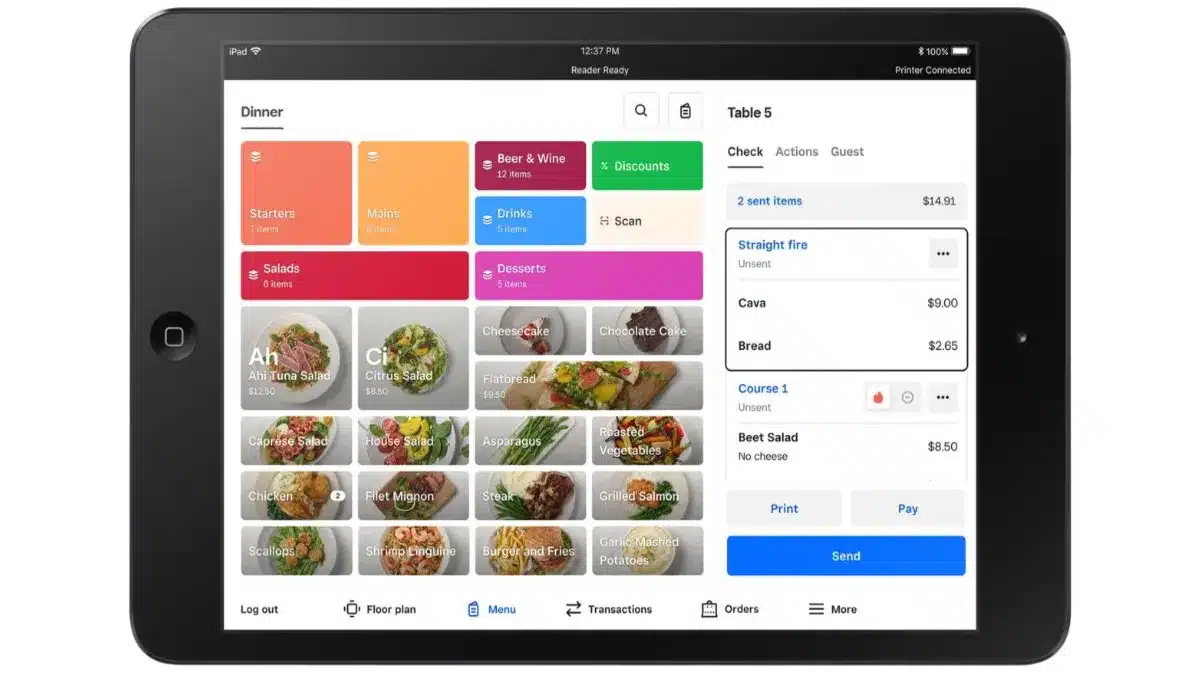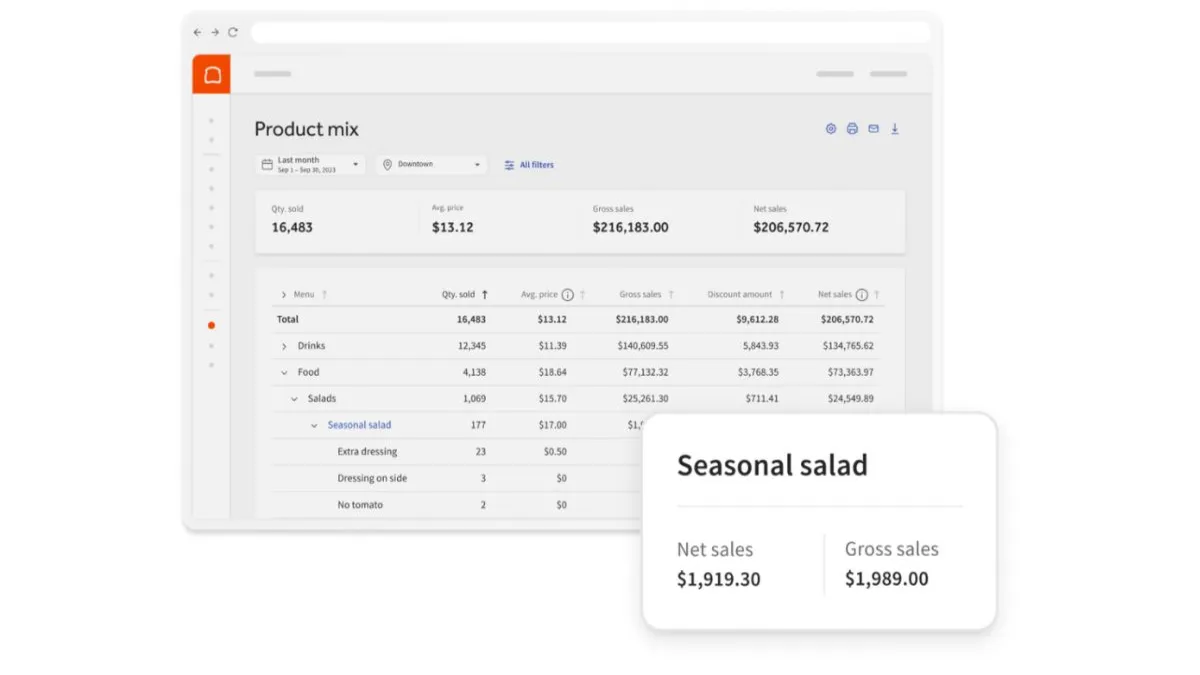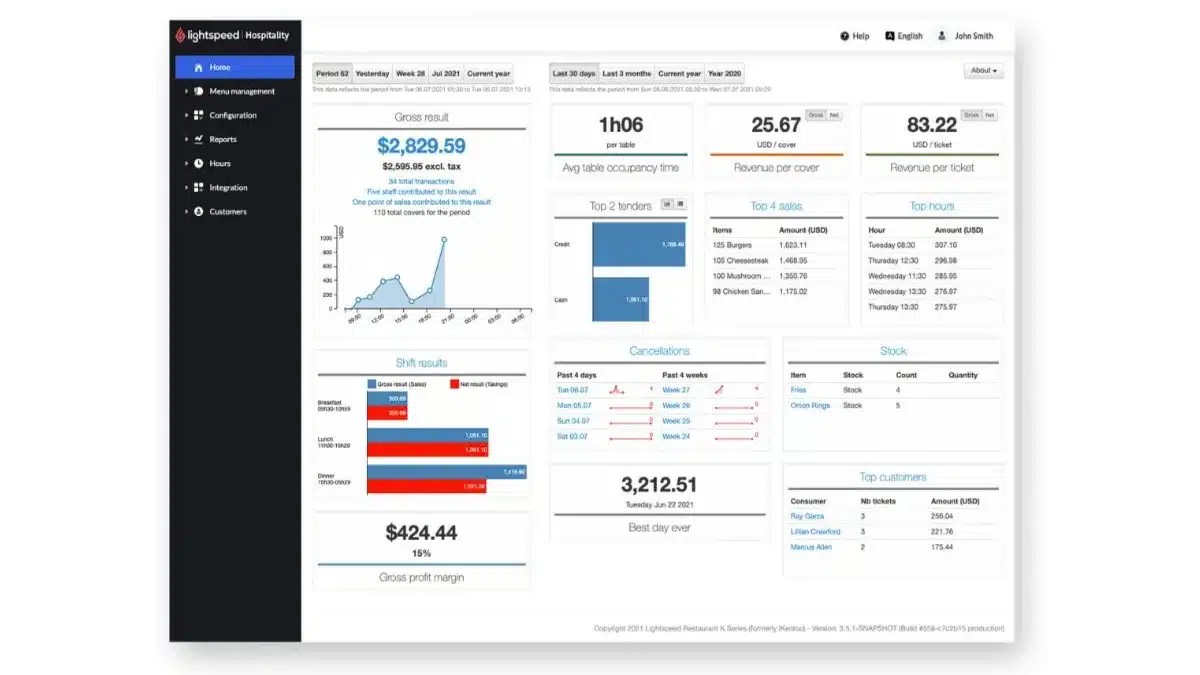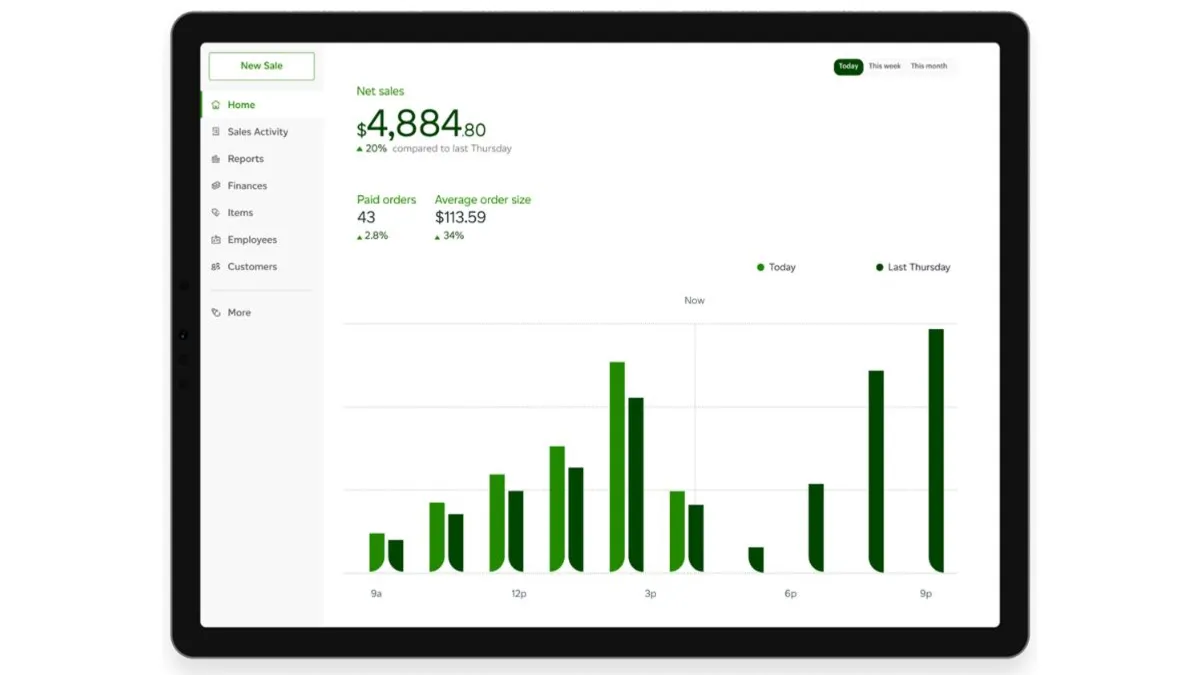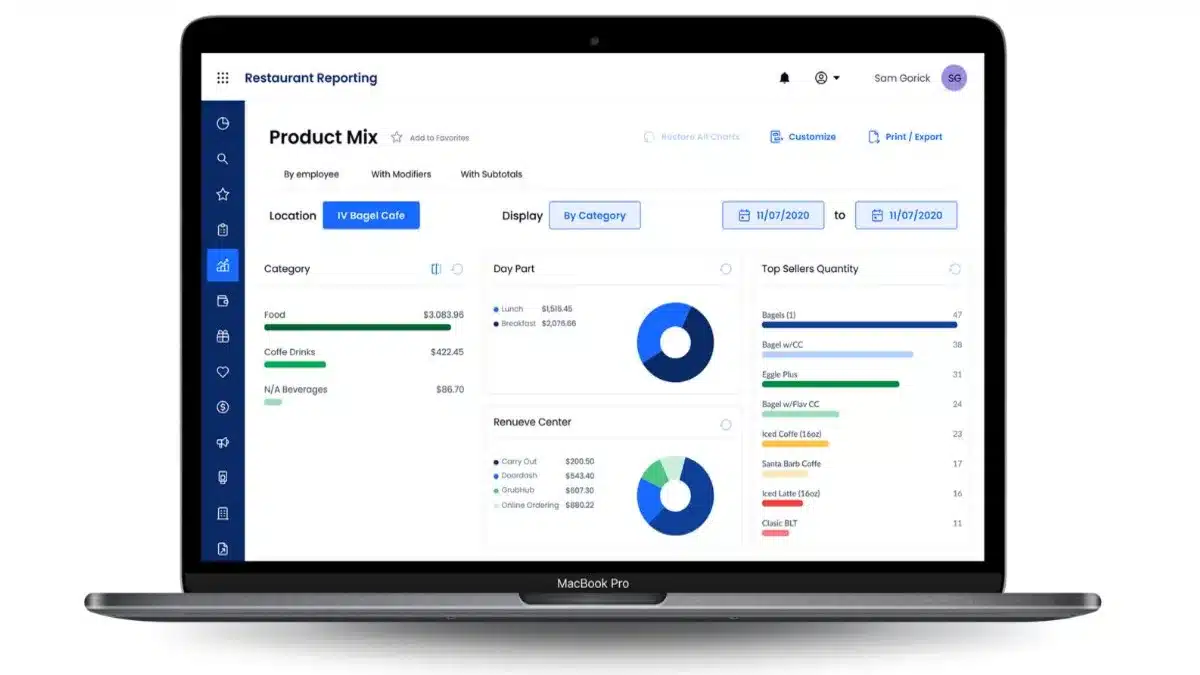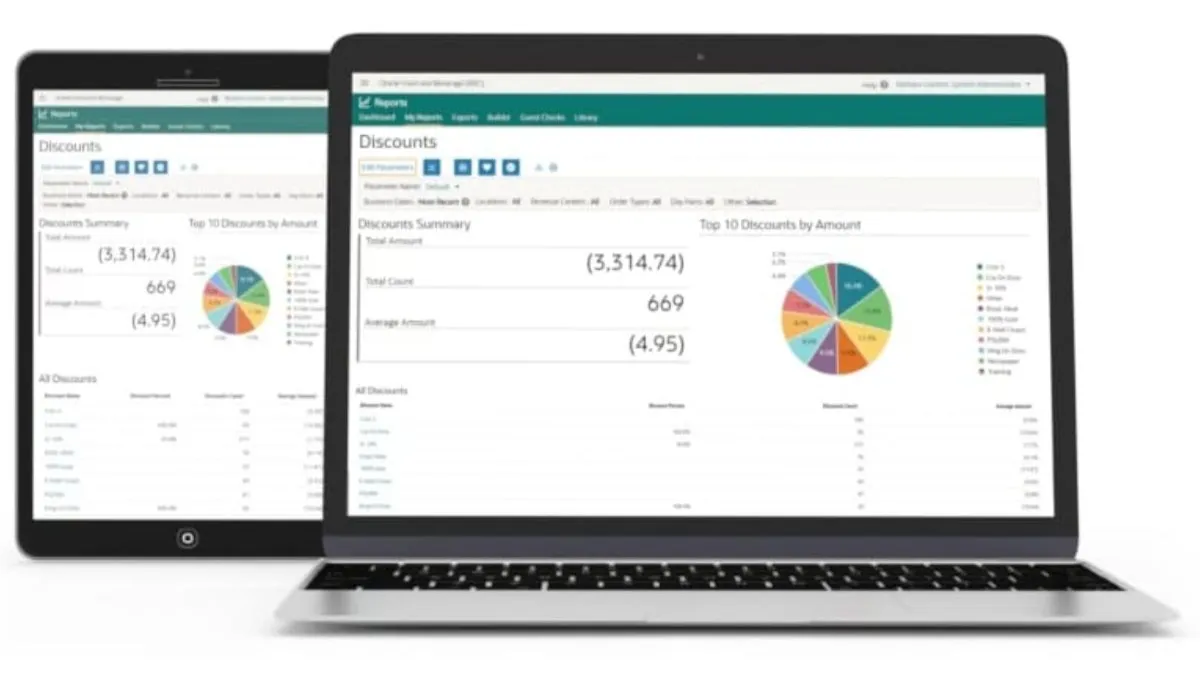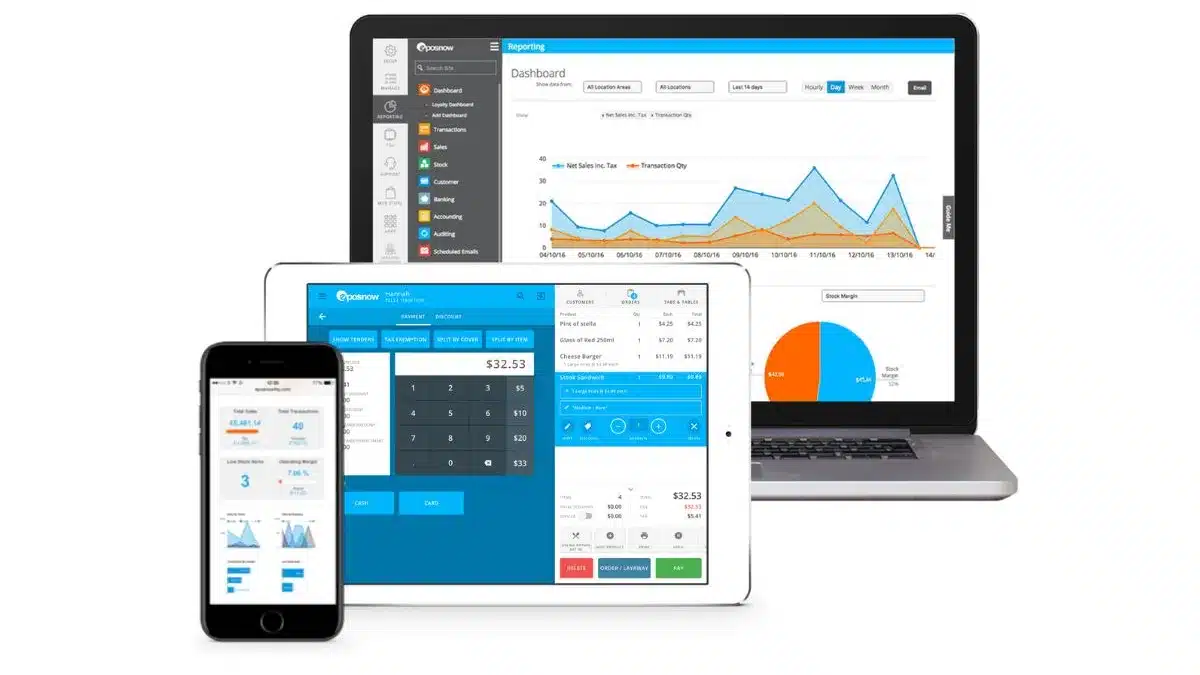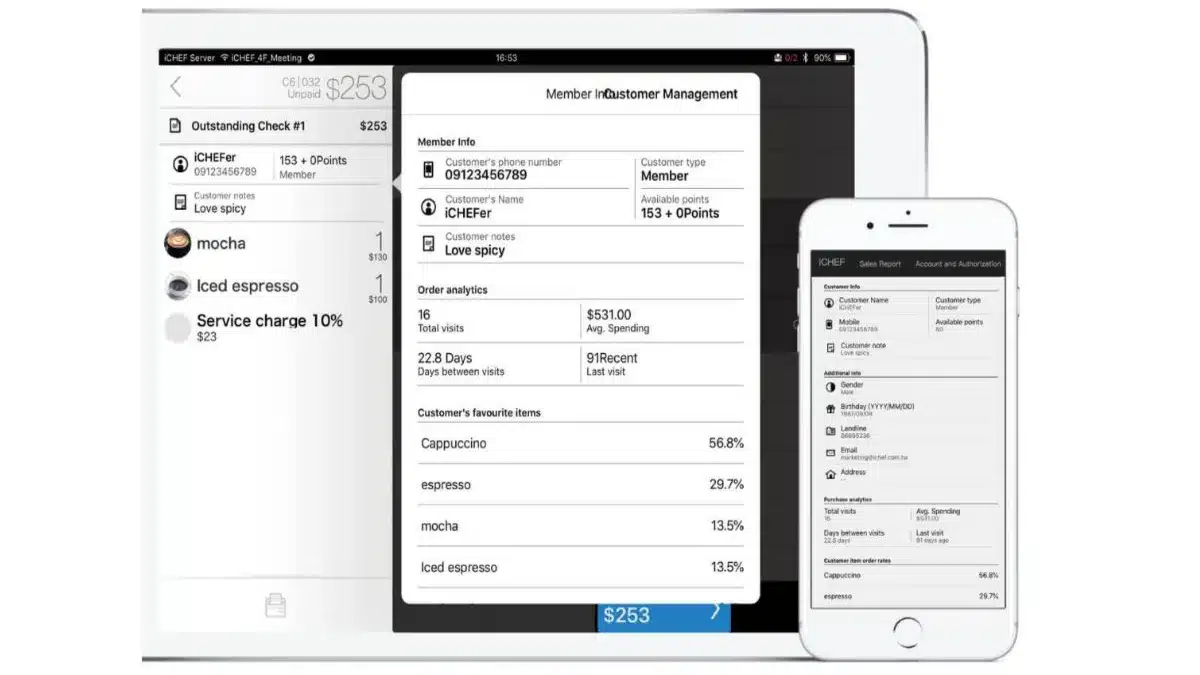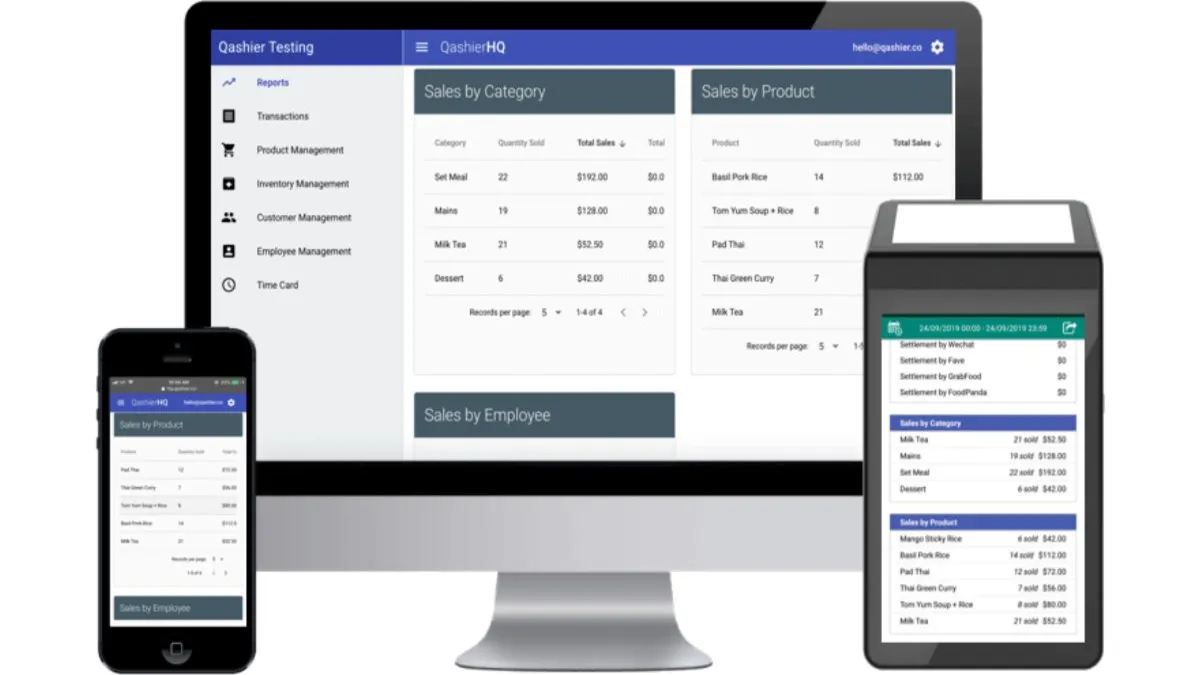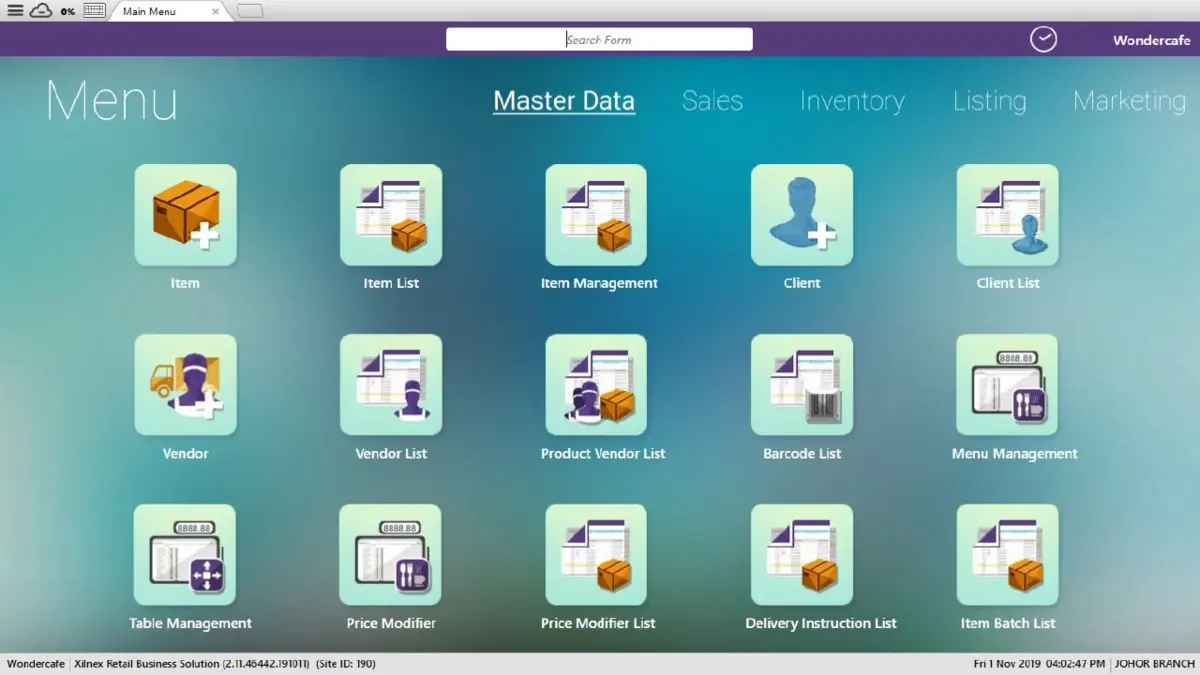A restaurant POS system is essential for keeping your operations running smoothly, especially in Malaysia’s fast-paced F&B landscape. I’ve experienced firsthand how challenging it is to manage order tracking, inventory, and customer service when everything is handled manually.
As I researched more about digital solutions, I realized that having the right restaurant POS system can really make a difference. A reliable system helps manage everything in one place, from order entry and table management to kitchen operations and real-time reporting. It also reduces human error and creates a more seamless customer experience.
This article aims to guide restaurant owners by providing essential data and insights into the best restaurant POS system in Malaysia. It aims to support informed decisions that enhance operations, ensure compliance, and prepare businesses for digital transformation. You can try the free demo now.
Key Takeaways
|
Shortlisted POS System Restaurant Providers Worth Considering
Having compared a wide range of POS tools, I’ve narrowed the list down to those delivering the best balance of performance and usability in 2025.
Best because
The best end-to-end solution for all types of business needs
Best Because
Secure platform with real-time management for restaurants.
Best Because
Versatile POS built to support any restaurant size.
Best Because
Easy-to-use system with strong inventory and payment tools.
Best Because
Modern POS that supports growth and enhances service.
Best Because
Reliable system designed for efficiency and accessibility.
Best Because
Designed for growth with powerful restaurant management tools.
What is a POS System Restaurant and Why It Matters
A Point of Sale (POS) system is a combination of software and hardware that facilitates business transactions between customers and businesses. It integrates both software and hardware to facilitate smooth payment processing, automate order handling, and maintain accurate inventory records.
In restaurants, POS systems do more than handle sales, they manage orders, monitor inventory, support loyalty programs, and generate reports. Advanced systems also connect with kitchen displays, online orders, and reservation apps for smoother operations.
For instance, an F&B POS system Malaysia allows servers to send orders directly to the kitchen, reducing errors and speeding up service. It also tracks sales data, helping restaurant owners refine their menu and improve efficiency.
Hashy AI Fact

Need to know!
Hashy AI helps you to send customers' orders to the kitchen display/station automatically so the staff and customers can monitor the cooking status easily.
Request a free demo today!
15 Best Restaurant POS Systems for F&B Businesses in Malaysia
Having explored the pivotal role of restaurant POS systems in enhancing compliance, efficiency, and profitability for Malaysian F&B businesses, it’s time to delve into the options available.
The following curated list of the best restaurant POS systems in Malaysia is designed to guide business owners through the myriad of choices.
1. HashMicro POS System Restaurant
HashMicro’s restaurant POS system is a robust and comprehensive solution designed to cater to the intricate needs of the restaurant industry.
Over 1,750 world-class enterprises in Southeast Asian countries rely on HashMicro’s solutions, which is a testament to its reliability and effectiveness.
The system boasts modules encompassing various aspects of restaurant workforce software, restaurant accounting software, from inventory and customer relationship management to procurement and accounting integration.
This best POS system for restaurant is highly customizable and can be integrated with third-party applications or mesh with existing systems. The software’s adaptability is particularly beneficial for businesses in Malaysia.
HashMicro offers prospective clients, such as you, free demo access so that you can experience firsthand how their software works and customize it according to your business needs.
Here are some key features of the system:
- Complete transaction features: The system’s multi-payment and multi-pricelist capabilities ensure accurate transaction recording and tax calculation, aiding Malaysian companies in adhering to e-invoicing regulations.
- Membership management: This feature manages customer data and automates membership details in invoices to track loyalty and tax compliance, supporting e-invoicing needs.
- Program and loyalty management: HashMicro’s system automates loyalty rewards in transactions, ensuring detailed records for e-invoicing compliance with program deductions.
- Meal combo management: The system streamlines meal combo creation and tracking, ensuring invoices reflect accurate pricing for e-invoicing compliance.
- Kitchen and ordering station: The system automatically sends orders to the kitchen, aligning invoicing with order fulfillment for e-invoicing compliance.
- Sales report generation: HashMicro’s real-time sales reports from each branch support e-invoicing with detailed insights for tax reporting and compliance.
| Pros | Cons |
|
|
Pricing: Not publicly listed; contact the HashMicro team for a customized quotation.
Best for: Restaurants and F&B businesses looking for an all‑in‑one solution with strong ERP‑integration, especially multi‑outlet operations that need real‑time inventory control, kitchen display support, loyalty programs, and finance linkage.

To explore the best solutions for your business, check out HashMicro’s ERP software. Discover our pricing schemes below and find the right package for your needs.
2. Eats365 POS
Eats365 POS System is a cloud-based restaurant cashier system that helps restaurants, cafés, and multi-outlet food businesses streamline their daily operations. By consolidating dine-in, take-away, and delivery orders into one platform.
Features:
- Order management: The system allows restaurants to efficiently handle dine-in, take-away, and delivery orders all in one place.
- Inventory tracking: Eats365 tracks stock levels in real time, alerts staff when supplies are low, and integrates with suppliers to automate reordering.
- Customer loyalty & CRM: Restaurants can implement loyalty programs, manage promotions, and monitor customer preferences.
- Staff management: The platform allows managers to schedule shifts, track attendance, monitor employee performance, and control access permissions.
- Analytics & reporting: Eats365 provides detailed reports on sales, item performance, staff productivity, and multi-outlet operations.
| Pros | Cons |
|
|
Best for: Mid-to-large F&B operations, multi-outlet chains, and businesses that need a scalable, cloud-based POS system with integrated inventory management, and loyalty programs.
Pricing: From RM118 per month (POS Basic) and RM260 per month (POS Advanced).
3. StoreHub
StoreHub POS System is a cloud‑based, all‑in‑one platform designed for POS system for restaurant Malaysia. It enables you to manage sales, inventory, staff, customer loyalty, online and offline channels from a single dashboard.
Features:
- Inventory management: Track stock in real time, get low-stock alerts, and manage multiple outlets.
- Employee management: Schedule shifts, track clock-in/out, and monitor staff performance.
- Loyalty programs: Run cashback, tiered rewards, and automated SMS campaigns.
- E-commerce integration: Sync sales, products, and stock across online and offline channels.
- Analytics & reporting: Access real-time insights on sales, operations, and workforce.
| Pros | Cons |
|
|
Best for: Small to medium retail stores, cafés and restaurant outlets that want a cloud‑based POS with strong inventory & staff management, loyalty programmes and multi‑channel sales capabilities.
Pricing: Starts at RM122 per month.
4. Square F&B POS System Malaysia
Square POS is a versatile and user-friendly restaurant POS system that’s designed to cater to a wide range of food service businesses, including restaurants, cafes, bars, bakeries, and food trucks.
It’s a cloud-based solution that offers a suite of tools to help streamline order management, marketing, inventory control, and customer data tracking, ultimately aiming to drive efficiency and enhance customer satisfaction.
Best features:
- Online ordering: Offers a free online ordering site that integrates with Google, Facebook, and Instagram, along with top delivery partners.
- Payment processing: Accepts all payments through swipe, dip, or tap, even when offline.
- Kitchen display system: Organizes orders from anywhere, tracking prep times and routing orders to correct stations.
- Customer relationship management (CRM): Builds loyalty programs and stores customer preferences for targeted marketing.
- Real-time data: Provides live reporting updates to track profits and manage cash flow.
| Pros | Cons |
|
|
Best for: Small to medium‑sized cafés, quick‑service restaurants, food trucks, and pop‑ups that need an easy‑to‑set‑up, affordable POS with built‑in payments, inventory tracking and mobile access
Pricing: Square Plus starts at RM230 per location per month.
5. Toast Restaurant POS System
Toast is the best POS system for business designed to cater to the needs of various types of food establishments, from small cafes to large-scale dining operations.
It’s a F&B cloud-based system that offers a suite of features aimed at streamlining restaurant management and enhancing the customer dining experience.
Best features:
- Customizable menu management: Allows for real-time updates and customization across locations.
- Order management and tracking: Streamlines the order process from placement to delivery.
- Staff management and scheduling: Facilitates efficient staff scheduling and management.
- Customer relationship management: Helps build and maintain customer relationships.
- Integration: Offers hundreds of integrations with various third-party applications.
- Analytics and reporting: Provides insights into business performance and customer trends.
| Pros | Cons |
|
|
Best for: Medium‑to‑large, full‑service or quick‑service restaurants, particularly those with multiple locations or more complex operations that need features like tableside ordering.
Pricing: Begins at RM325 per month.
6. Lightspeed Restaurant POS
Lightspeed Restaurant POS is a comprehensive, cloud-based point-of-sale system tailored for the restaurant industry. It’s designed for various types of dining establishments, from small cafes to large, multi-location restaurants.
Best Features:
- Customizable menus and floor plans: Tailor the POS to fit the restaurant’s layout and menu offerings.
- Integrated payments: Streamline the payment process for a seamless customer experience.
- Inventory management: Track inventory down to the ingredient level.
- Advanced insights: Gain valuable data on menu optimization, customer behavior, and staff performance.
- Multilocation support: Manage all locations or revenue centers from one platform.
- Kitchen display system: Connect front-of-house and back-of-house teams for improved communication and efficiency.
| Pros | Cons |
|
|
Best for: Mid‑to‑large full‑service and quick‑service restaurants, especially those with multiple outlets, complex menus, and a need for advanced reporting and multi‑channel integration.
Pricing: Starts at RM420 per month.
7. Clover
Clover POS is a robust and flexible restaurant POS system that caters to a variety of food service establishments, including full-service restaurants, quick-service eateries, and everything in between.
This POS system is designed to streamline operations, enhance customer service, and support business growth through its comprehensive set of features.
Best features:
- Digital floor plans: Streamlines service with digital table mapping.
- Order management: Simplifies order taking and course timing control.
- Payment processing: Securely processes various payment methods.
- Kitchen display system: Enhances communication between kitchen and wait staff.
- Back office tools: Includes time tracking, payroll integration, and robust reporting capabilities.
- Online ordering: Offers commission-free online ordering and delivery management.
| Pros | Cons |
|
|
Best for: Small‑to‑medium businesses (SMBs) across retail, hospitality, and service industries that need a flexible, easy‑to‑use platform with strong customization.
Pricing: As low as 2.3% + RM0.47 per transaction.
8. SpotOn
SpotOn Restaurant POS System is a cloud-based point-of-sale solution designed for the modern restaurant industry.
This platform POS system restaurant is known for its flexibility, ease of use, and comprehensive feature set that supports various restaurant types, from casual dining to fast-casual and bars.
Best features:
- Cloud-based: Ensures that data is always up-to-date and accessible from anywhere.
- Customizable interface: Simplifies complex menu and table management.
- Cellular backup: Keeps the system running even when the internet goes down.
- Advanced reporting: Provides detailed insights into business performance.
- 24/7 support: Offers round-the-clock customer support.
| Pros | Cons |
|
|
Best for: Independent or multi‑location restaurants looking for a cloud‑based, full‑featured POS that supports table‑service complexity, handheld ordering, and real‑time multi‑unit management.
Pricing: From RM260 per station per month, with 1.99% + RM1.18 per transaction.
9. Oracle Simphony POS System Restaurant
Oracle Simphony POS is a cloud POS system built for complete restaurant management. It offers an all-in-one solution that helps restaurateurs optimize their online and in-house operations in real time from any device.
This POS system for restaurant Malaysia is known for its ability to handle a high volume of transactions and its extensive integration ecosystem.
Best features:
- Cloud-based platform: Offers flexibility and accessibility from any device.
- Conversational ordering: Allows orders to be taken as they are spoken, enhancing customer service.
- Multi-language and multi-currency support: Adapts to various languages, currencies, and local regulations across 160 countries.
- Secure transactions: Runs solely on Oracle’s secure enterprise-grade technology stack.
- Integration ecosystem: Supports over 85 integration partners for extended POS capabilities.
| Pros | Cons |
|
|
Best for: Full‑service and multi‑location restaurants, large casual dining chains, and hospitality operations with complex service needs.
Pricing: Starts from RM5 per month.
10. Epos Now
Epos Now is a versatile and comprehensive restaurant POS system that offers a range of features to help streamline operations for food and beverage businesses. It provides tools for sales processing, inventory management, and customer engagement.
Best features:
- Multichannel sales: Processes sales from various channels in one place.
- Kitchen display system: Reduces errors and improves service with real-time order updates.
- Inventory management: Tracks inventory, simplifies reordering, and integrates with accounting software.
- Payment processing: Accepts all payment types with Epos Now Payments for a blended rate.
- Sales reporting: Offers powerful sales reports to boost profitability and reduce wastage.
| Pros | Cons |
|
|
Best for: Retail stores, cafés, and hospitality businesses that need a flexible, cloud-based platform with strong integrations and remote access capabilities.
Pricing: Approximately RM595 for the POS Pro Solution.
11. iCHEF iPad POS System Restaurant
iCHEF POS is a cloud-based restaurant POS system that, with its comprehensive and intuitive features, has been setting a new standard for the industry.
It’s designed to manage all the operations needed by a restaurant, from monitoring sales and guest count to queuing, sending orders to the kitchen, seating, serving, and printing out receipts.
Best features:
- Cloud computing system: Manages operations efficiently and provides real-time data.
- Table management: Increases table turnover rate and tracks every table’s status.
- Order from anywhere: Takes orders by the table with an iPad, adding modifiers and sending them to the kitchen in one go.
- Seamless communication: Minimizes errors with clear kitchen printer configurations and instant notifications for order changes.
- Promotions and discounts: Tracks promotions with detailed reports and controls discounts to ensure profitability.
| Pros | Cons |
|
|
Best for: Restaurants that need fast, flexible front-of-house and back-office operations, especially cafés, casual dining, and multi-outlet F&B businesses.
Pricing: Starts at RM229 per month.
12. Qashier
Qashier POS System is a comprehensive point-of-sale solution designed to cater to the unique needs of restaurants and food service businesses.
It’s a restaurant system that offers a range of features to streamline operations, enhance customer service, and improve overall business management.
Best features:
- Streamlined billing operations: Keeps track of customer orders, table occupancy, and kitchen operations.
- Split billing: Allows for split billing upon customer request, simplifying the payment process.
- Inventory management: Integrated ingredient management system alerts when stock items reach their reorder level.
- Customer relations: Builds a CRM database for better customer engagement and loyalty programs.
- Multi-platform integration: Receives orders from various delivery platforms directly into the kitchen.
| Pros | Cons |
|
|
Best for: Well-suited for small to medium-sized businesses such as cafés, kiosks, salons, and boutique retail stores thanks to its fast setup, intuitive interface, and cloud-based back-office.
Pricing: Bundle begins at RM13,127.
13. Restroworks
Restroworks POS System is a cloud-based F&B pos system Malaysia designed to streamline operations for F&B businesses. It offers tools for sales, inventory, digital ordering, and customer engagement.
Best features:
- Order & table management: Efficiently handle dine-in, take-away, and delivery orders.
- Staff & shift management: Track employee hours, performance, and scheduling.
- Loyalty & promotions: Run customer loyalty programs and discounts seamlessly.
- Cloud reporting: Access real-time sales, inventory, and performance reports.
- Integration capabilities: Connects with accounting, payment gateways, and online ordering platforms.
| Pros | Cons |
|
|
Best for: Multi‑outlet restaurants, cloud kitchens, and hospitality groups needing a strong cloud‑based platform with features like staff & shift management, loyalty programs, and real‑time analytics.
Pricing: Not published; custom pricing based on business requirements.
14. FoodZaps
FoodZaps is a cloud‑based POS solution built for F&B businesses in Malaysia and the region. It enables cafés, bars, kiosks, and restaurants to manage orders, inventory, menus, and reporting, from any device, with support for offline mode when internet connectivity is weak
Features:
- Order & table management: Supports dine‑in, take‑away, self‑ordering and waiter ordering via mobile/tablet.
- Inventory & recipe tracking: Manages stock down to product or ingredient level; low‑stock alerts built‑in.
- Cloud reporting & analytics: Real‑time dashboards let managers monitor sales, top dishes, staff performance, and outlet status from anywhere.
- Offline mode/fail‑safe: The system continues functioning even during internet disruptions, then syncs data when back online.
- Multi‑device & hardware versatility: Works with tablets, mobile devices, kitchen display units, and supports custom configurations across outlets.
| Pros | Cons |
|
|
Best for: Small to medium F&B outlets, cafés, kiosks, food trucks, and restaurants looking for a cost‑effective, flexible POS that supports offline fallback and gives good value with core F&B features in place.
Pricing: From RM190 per month.
15. Xilnex
Xilnex POS System is a cloud‑based platform designed for restaurant pos system in Malaysia and Southeast Asia. It offers a unified system to manage sales, inventory, payments, mobile dashboards, and customer loyalty, with scalability for multi‑outlet operations.
Features:
- Inventory & Supply Chain Control: Tracks stock, transfers, wastage adjustments, and integrates with back‑office supply chain modules.
- Order & Sales Management: Supports various sales types (dine‑in, take‑away, delivery), QR ordering and integration with e‑commerce/delivery platforms.
- Customer Loyalty & CRM: Built‑in loyalty modules, membership tiers, cross‑channel rewards and marketing automation (SMS, vouchers).
- Real‑Time Reporting & Dashboards: Mobile dashboards, web reports, analytics on sales, inventory, staff and operations.
- Payment & Multi‑Channel Integration: Supports cashless and cross‑border payments, e‑wallets, QR scanning (DuitNow QR) and connects with online sales channels.
| Pros | Cons |
|
|
Best for: Small single‑outlet businesses may find advanced features unnecessary, adding extra cost and complexity.
Pricing: Starts at RM159 per month.
Overall Comparison of F&B POS Systems for Restaurants in Malaysia
To help you evaluate your options more clearly, we’ve put together a comparison of top POS system restaurant providers in Malaysia. This table highlights key aspects like connection quality, bank coverage, ease of integration, and data encryption.
| Provider | Connection Quality | Bank Coverage | Ease of Integration | Data Enrichment |
|---|---|---|---|---|
| HashMicro | ||||
| Oracle | ||||
| Toast | ||||
| Square | ||||
| Clover | ||||
| SpotOn | ||||
| Lightspeed | ||||
| Epos | ||||
| iChef | ||||
| Qashier | ||||
| Restroworks | ||||
| Eats365 POS | ||||
| StoreHub | ||||
| FoodZaps | ||||
| Xilnex |
How Does a POS System Restaurant Work at the Cashier?
In a restaurant setting, a POS system restaurant works as the central component for managing transactions and streamlining various operations. Here’s a detailed breakdown of how it functions:
- Order placement: Servers enter order details, including menu choices and guest count, into the POS system for processing.
- Order processing: Orders are sent to the kitchen display or printed for chefs, reducing manual errors and allowing immediate meal preparation.
- Payment handling: The POS system tallies the bill with taxes and fees, accepts multiple payment forms, and can divide the bill as required.
- Inventory management: The best POS system for restaurant monitors inventory in real-time, ensuring stock maintenance and alerting managers to low ingredients.
- Sales tracking and reporting: The POS system for restaurant Malaysia gathers sales data for reports on menu performance, busy hours, and revenue, aiding strategic business decisions.
- Customer management: POS systems may feature customer relationship management, tracking orders, preferences, and loyalty programs.
Overall, a point-of-sale system for restaurant is an F&B software that not only processes sales transactions but also enhances operational efficiency, improves customer service, and provides valuable insights into the business’s performance.
With many POS systems on the market, choosing the best POS system for restaurant for your restaurant can be overwhelming. To help you choose the right solution, here are some of the best restaurant POS systems in Malaysia that can optimize your business operations.
Why Malaysian F&B Businesses Must Use Restaurant POS System?
In Malaysia, where the F&B sector is a significant contributor to the economy, implementing a POS system is becoming increasingly vital. So, why do Malaysian F&B companies need to implement a F&B POS system Malaysia software?
- Compliance: The Malaysian government’s mandate for e-invoicing requires businesses to have a digital system in place to comply with tax regulations.
- Efficiency: POS systems automate many of the manual processes, reducing human error and saving time, which is particularly valuable during peak hours.
- Data analytics: They provide actionable insights into customer behavior and sales patterns, enabling businesses to make informed decisions.
What If You Don’t Implement a POS System Restaurant?
Many restaurants still rely on manual processes, unaware of the challenges it brings. Without a proper POS system, they risk setbacks in operations, finances, and compliance. Here’s what can happen without one:
- Non-Compliance Risks: Without a POS system, businesses may struggle to meet Malaysia’s e-invoicing regulations, risking penalties and disruptions to their financial reporting.
- Operational Inefficiencies: Manual order-taking and billing are time-consuming and prone to errors. This leads to slow service, incorrect orders, and difficulty in tracking sales, affecting both customer satisfaction and business efficiency.
- Financial Inaccuracies: Without automated tracking, miscalculations in revenue, inventory shortages, and unrecorded transactions become common, leading to financial discrepancies and potential losses.
How to Choose the Right POS System Restaurant in Malaysia
Choosing the right POS system restaurant for Malaysian F&B companies involves carefully considering several factors to ensure that the software aligns with the specific needs and regulations of the region. Here are some key points to consider:
- Understanding local regulations: Malaysian F&B businesses need a POS system that meets e-invoicing regulations, records transactions precisely, and calculates taxes according to Malaysian law.
- Software credibility and reliability: Evaluate a software’s reliability by examining customer feedback, particularly from Malaysian F&B businesses, and assess the provider’s client base and market reputation.
- Features and customization: Choose a POS system with features tailored to your business needs, like membership and loyalty programs, and ensure it’s customizable and integrates with existing systems.
- Technical support and training: Ensure your POS system has robust technical support, including staff training, to reduce downtime and maintain smooth operations.
- Scalability: Look for a system that is scalable and can accommodate additional features or increased transaction volumes without significant disruptions or additional costs.
- Cost considerations: Most importantly, consider the total cost of ownership, including initial costs, recurring fees, and extra feature charges, to balance functionality with affordability.
Conclusion
Selecting the right restaurant POS software in Malaysia plays a crucial role in streamlining daily operations and maintaining compliance with local regulations. It should also support your business as it scales.
HashMicro’s Restaurant POS System emerges as a standout choice. With its customizable features, comprehensive support for e-invoicing, and a proven track record with numerous F&B clients in Malaysia, it’s designed to propel your business forward.

We encourage you to take the next step in optimizing your operations by trying out HashMicro’s free demo. Experience firsthand how it can transform your business, making every transaction smoother and every customer experience better.

FAQ about POS System Restaurant
-
How can a POS system help manage restaurant table orders efficiently?
A POS system streamlines table management by allowing staff to assign and track orders easily. Orders can be taken directly at the table using portable devices and sent instantly to the kitchen, reducing errors and speeding up service.
-
Can a POS system integrate with food delivery services?
Yes, many modern POS systems offer seamless integration with various food delivery platforms. This integration allows restaurants to manage in-house and delivery orders from a single system, ensuring that the process is efficient and reducing the chances of errors. This feature is particularly useful for restaurants looking to expand their delivery services.
-
How does a POS system support inventory management in a restaurant?
POS systems include robust inventory management features. These systems can track stock levels in real-time, send re-order reminders, and generate detailed reports on inventory usage. This functionality helps restaurant managers maintain optimal stock levels, reduce waste, and ensure that they never run out of essential ingredients.
-
Is it possible to manage customer loyalty programs with a POS system?
Yes, many POS systems come with built-in features for managing customer loyalty programs. This feature is crucial for enhancing customer retention and encouraging repeat business.
-
What are the benefits of using self-service kiosks in a restaurant?
Self-service kiosks can significantly enhance the efficiency of a restaurant by reducing wait times and increasing order accuracy. These kiosks allow customers to place their orders directly, which helps in managing high traffic volumes and improves overall customer satisfaction.
-
How does a POS system work with accounting software?
A POS system and accounting software integrate to streamline financial management in restaurants. The POS system tracks sales, transactions, and inventory, while accounting software ensures accurate financial reporting, cost control, and tax compliance.



